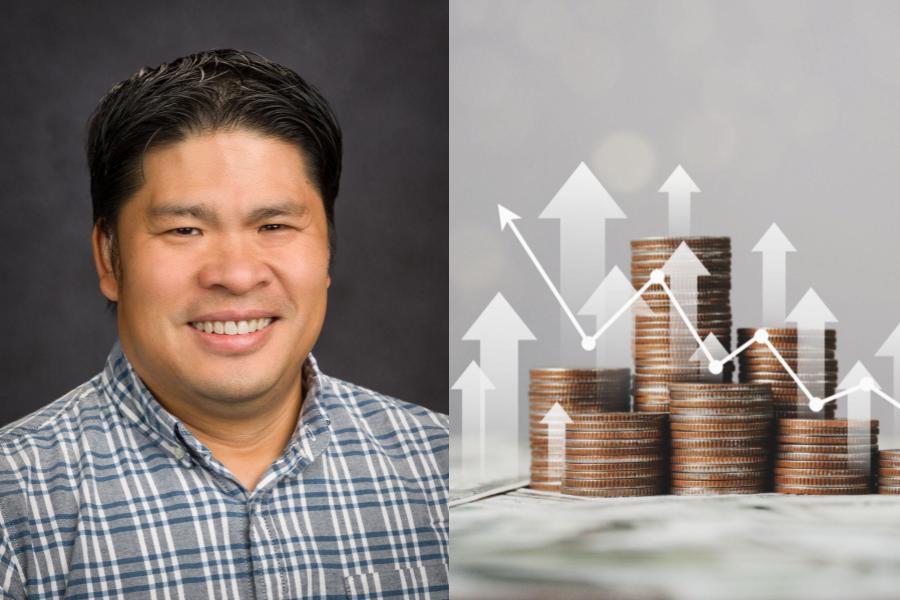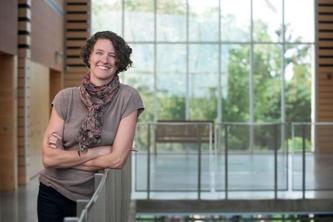
MINNEAPOLIS/ST. PAUL (01/18/2024) — A new year brings the opportunity to ring in resolutions focused on positive changes. While many resolutions revolve around physical health, it's equally important to consider another vital aspect of health — financial well-being.
Extension Educator Dung Mao answers questions about making financial goals and building a habit of saving.
Q: How can I make saving money a habit?
Mao: Consistency is key, no matter how much you save. Start by saving as little as a dollar each week. It may not seem like a lot, but being able to save that dollar shows you can save. Your goal could grow to $10 or $100 each month in the future.
Another way is to put away a percentage of your paycheck. Try saving 1% and see how you feel. If it doesn't hurt too much, save 2% the next month, then 3% and so on. Saving might be tough at first — giving up your morning coffee to save some money could feel like a loss. It's important to remember that saving for your needs and future emergencies is actually a win. It's something to be proud of.
Q: How can investments be part of my saving strategy?
Mao: Investments can be a powerful tool — helping to potentially grow your money over time by putting it into different investment options, such as stocks, bonds or mutual funds. Growth is often seen in the form of interest or dividends. This growth can help you reach your savings goals faster than just setting cash aside. That said, investments come with certain risks and losing money is possible. It's important to understand these risks, be an informed investor and adjust your strategy based on your comfort level and saving goals.
Q: What is your advice for dealing with financial setbacks?
Mao: First, life happens and it is important to be kind to yourself when it does. It is common to have an illness, car problem, or something else that knocks us off the path toward our financial goals. When setbacks happen, we tend to want to blame ourselves and run away or give up. Here is what to do instead: take a deep breath, know that this is temporary and remind yourself that you can succeed. Adjust your plan and do it again. You got this!
Q: How do emotions affect our relationship with money?
Mao: It seems whenever people talk about money, it is usually in the form of numbers, charts, logic and material wealth. When we see that, it is easy to forget that money is deeply emotional. I am willing to predict that most of us don’t work for money solely to accumulate piles of paper or to see the numbers in our bank accounts grow.
We work for money because of what money can give us, such as the joy in knowing we can provide for ourselves and our families. Joy could also come from knowing we could purchase gifts or afford enriching experiences for our loved ones. On the other hand, money can also evoke anxiety and stress, especially the feeling we get when we are not able to meet our necessities.
Either way, recognize that money can directly affect our emotions and be mindful of that connection to help improve your overall mental health as well as how you make financial decisions.
Q: What resources are available to help me work on my financial well-being?
Mao: Extension offers many resources and guidance to help with your financial journey, including budgeting, debt management, retirement planning and more. Some people prefer to create a detailed plan, while others take a more relaxed approach. No matter your situation, Extension’s resources can help you meet your goals. Visit Extension’s Spending, saving, and retirement webpage to learn more: extension.umn.edu/personal-finances/spending-and-saving.
Dung Mao is an Extension Educator in the Department of Family, Health and Well-being, specializing in financial literacy and financial capability. He is based out of the regional office in Andover and welcomes any thoughts and comments you may have around money at [email protected].
About “Talking...with U of M”
“Talking...with U of M” is a resource whereby University of Minnesota faculty answer questions on current and other topics of general interest. Feel free to republish this content. If you would like to schedule an interview with the faculty member or have topics you’d like the University of Minnesota to explore for future “Talking...with U of M,” please contact University Public Relations at [email protected].
- Categories:
- Business and Management
- Finance




